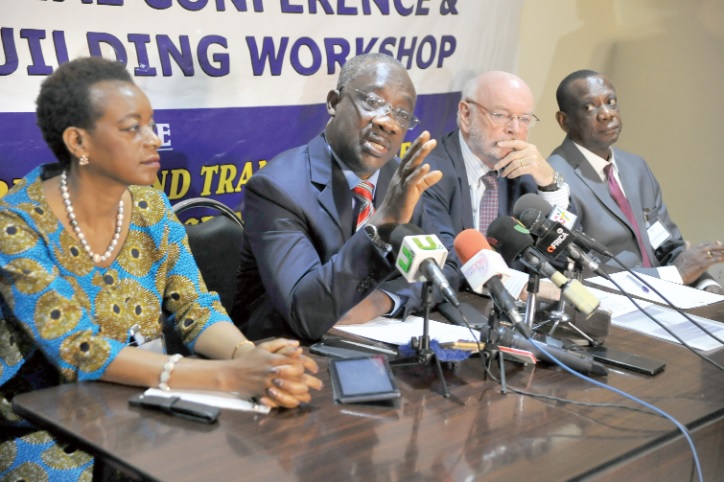
GRA adopts measures to plug loopholes for illicit financial flows
The Ghana Revenue Authority (GRA) has begun implementing measures to combat illicit financial flows (IFFs) arising from money laundering, bribery, corruption and tax evasion.
Advertisement
Some of the measures include building the capacity of staff of the authority to enable them to detect and deal with the abuse of treaties and partnering the Economic and Organised Crime Office (EOCO), anti-corruption agencies and international and regional organisations to trace the sources of revenues and incomes.
The Commissioner-General of GRA, Mr Kofi Nti, made this known at the opening of an international conference on dealing with illicit financial flows in Accra yesterday.
The three-day event, organised by the GRA, is aimed at creating the platform for the exchange of ideas on how to find an antidote to transfer pricing abuse which contributes significantly to IFFs.
It has also been designed to build the capacity of participants on countering treaty and transfer pricing abuse.
The conference is on the theme: “Countering treaty and transfer pricing abuse — The tax and financial crime dimension”.
Readiness
Illicit financial flows occur when money is illegally earned, transferred or spent. This money is intended to disappear from any record in the country of origin, and earnings on the stock of illicit financial flows outside of a country generally do not return to the country of origin.
According to the United Nations Economic Commission for Africa, the continent is estimated to be losing more than $50 billion annually through IFFs.
Although there are no figures to trace as to how much Ghana loses through IFFs, Mr Nti said it was experiencing some losses.
“I cannot put my finger on the exact amount Ghana is losing because of lack of data, but we are aware that we are incurring some losses. It’s a bit of a challenge for the GRA and that is why we are having this conference to look into the issues and deal with them,” he said.
On the preparedness of the GRA to deal with the issue, he said initially the authority did not have a transfer pricing unit to properly address IFFs.
“Now that we have a unit established to look into IFFs, the GRA is determined to use all avenues possible to deal with the problem,” he stressed.
He said the work done at the transfer pricing unit had unearthed a lot of issues regarding financial flows and that measures were being put in place to deal with all of them.
On the conference, Mr Nti said the objective was to provide an opportunity for the discussion of the recommendations of the Thabo Mbeki-led High Level Panel on IFFs and review the stage of their implementation by African countries.
“The conference will also provide a platform for the exchange of experiences and ideas on how bilateral, multilateral and regional tax treaty instruments and specific provisions within these instruments can be used to counter abusive tax practices,” he said.
Political will
An international tax expert, Mr Jeffrey Owens, stressed the need for African governments to show the political will in dealing with IFFs.
He said without the support and determination of governments, it would be extremely difficult to combat IFFs and other illegal activities on the continent.
Mr Owens, who is also a Co-Director of the Tax and Good Governance Project at the Institute for African and International Tax Law, urged participants to take advantage of the conference to build their knowledge on IFFs.



